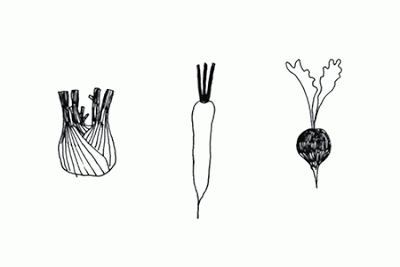The way nature intended...
More reasons for supporting Organic!
1. Better for your planet
Over 20% of the greenhouse gas emissions come from food and farming today. Nitrogen fertiliser manufacturing is the worst offender. To produce just one tonne takes one tonne of oil, seven tonnes of greenhouse gasses and one hundred tonnes of water. Organic farmers work with nature to feed the soil and control pests. By choosing organic, local and seasonal - we can significantly reduce our carbon footprint.
2. Great for You
No food has higher amounts of beneficial minerals, essential amino acids and vitamins than organic food. Organic food avoids pesticides and all controversial additives including aspartame, tartrazine, MSG and hydrogenated fats. Organic food contains higher levels of vitamin C and minerals like calcium, magnesium, iron and chromium as well as cancer-fighting antioxidants and Omega 3. Organic milk for example, is on average 68% higher in Omega 3 essential fatty acids.
3. Kind to animals
Animal welfare is at the heart of organic systems. Soil Association standards for meat and animal products rigorously protect all aspects of animal wellbeing - from rearing, feeding and shelter, to transportation and slaughter. Organic animals are free to pursue natural behaviour because they have plenty of outside space to thrive and grow, and are not routinely drugged with antibiotics. Organic standards prohibit cruelty and guarantee truly free-range lives for farm animals.
Yes, that’s right. Many shoppers don’t realise that organic products are also free range. Eggs and meat with the Soil Association symbol have been reared to the highest level of free-range standards. Birds are looked after in smaller flocks, spend more of their lives roaming outside on fresh grass and have more space in their houses.
4. Encourages wildlife
The Government’s own advisors found that plant, insect and bird life is up to 50% greater on organic farms. Organic farming relies on wildlife to help control natural pests, so wide field edges are left uncultivated for bugs, birds and bees to flourish. They are also not sprayed away by the fertilisers, chemicals and pesticides routinely used on non-organic farms.
5. GMO free
Genetically modified (GMO) crops and ingredients are banned under organic standards. Shoppers wanting to avoid GMO products may be surprised to know that over a million tons of GMO crops are imported each year to feed non-organic livestock, which in turn supply our supermarkets with pork, bacon, milk, cheese and other dairy products.


No comments:
Post a Comment